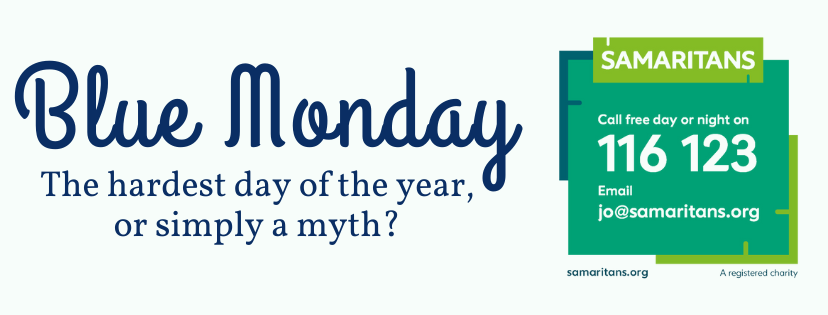There is a fair amount of stigma surrounding psychosis as there is a lot of misunderstanding about what it means to experience the condition. There are many negative connotations that have stemmed from the word ‘psychosis’, with a lot of people believing that individuals who experience psychotic episodes are dangerous to themselves and those around them. But this really is not the case.
Causes of Psychosis:
Psychosis can be a symptom of various mental health conditions. If you have more than one of these diagnoses, then you may be more at risk when it comes to experiencing psychosis and vice versa:
- Severe depression
- Schizophrenia / schizophreniform disorder
- Bipolar disorder
- Schizoaffective disorder
- Paranoid personality disorder / Schizotypical personality disorder
- Postpartum psychosis
- Delusional or paranoid disorder
- Brief psychotic disorder – this may be the diagnosis given if your symptoms last less than one month, or if the doctor cannot diagnose any other disorder based on the symptoms that you possess.
You do not have to have one of the above conditions to experience psychosis, it is possible to experience it on its own.
Though there are some aspects that can increase the likelihood of psychosis occurring:
- Having a physical illness or injury can in some cases, cause you to see or hear things that are not really there. This is particularly likely in the case of a high fever or head injury. It is also more common in those who have experienced lead or mercury poisoning or if they have Alzheimer’s disease or Parkinson’s.
- Drugs can also cause people to see or hear things that are not truly there. Street drugs such as LSD and cannabis are among the drugs that can have such effects. Some prescribed drugs can also cause hallucinatory side effects; as well as coming off of psychiatric drugs.
- Severe lack of sleep.
- Severe hunger, low blood sugar or not getting enough nutrients.
- Bereavement. Sometimes people can hear or feel their lost loved ones around them after they have passed, though they cannot see them directly.
- Abuse or trauma can also trigger hallucinations and delusions.
- Spiritual experiences – Some people hear voices or have visions as part of spiritual experiences. This could be a negative experience or a positive one.
- Family inheritance, meaning that you may be more at risk of experiencing psychosis if other members of your family have also experienced it.
Types of Psychosis:
There are three main types of psychosis, hallucinations, delusions and disorganised thinking and/or speech.
Hallucinations Include seeing things that other people do not see. This could be seeing faces, animals or religious figures. Hallucinations may also cause the individual to see objects in a distorted way, this could include seeing them move in a way that they usually wouldn’t. As well as seeing things that are not really there, the individual may also experience tastes, smells and sensations which do not have an apparent cause. Hearing voices is also common when hallucinating. The voices are not always negative, they can be positive and helpful too.
Delusions are false beliefs. We all have beliefs that other people do not share with us, however, a delusion is more than that. It is a false belief that no one else shares and the individual will still believe it despite there being an endless amount of evidence against it. Some delusions can be frightening, believing that someone is watching you, following you or trying to harm you in some way. These ideas are often referred to as ‘paranoid delusions’.
Disorganised thinking and speech can come as a result of hallucinations and delusions as they can leave the individuals thoughts and emotions feeling confused. Disorganised thinking can also be called ‘formal thought disorder’ and it can include symptoms such as racing thoughts. Thoughts that go through their head very fast and often come with a flight of ideas.
Flight of ideas is where thoughts move very quickly from one idea to another, making links that other people do not make.
The individual may speak very quickly and stutter over your words, making others find it difficult to understand them. They may also link words together due to the way that they sound rather than by their meaning. This can cause their speech to be jumbled up. It is also common for them to change the topic of conversation fairly quickly and they can find it difficult to concentrate on one thing for a long period of time.
Racing thoughts and flight ideas can also be a result of hypomania, if the individual only experiences these when they are in a depressive, manic or mixed episode then that may be diagnosed with bipolar disorder.
It is important to remember that psychosis can affect people in various different ways. They may experience it once or they could have short episodes throughout their life, or in worse cases, they could live with it through the majority of their life.
Treatment and Support:
There is no quick and simple treatment in regards to psychosis, however, with the correct treatment and support, it is possible for the individual to manage their symptoms and recover. This does not mean that all of the symptoms go away completely. However, it does mean that the individual may find various ways of coping with their symptoms if they were to continue.
There is a range of treatments available for psychosis. These include talking therapies such as Cognitive Behavioural Therapy and medications such as antipsychotics, antidepressants or mood stabilisers. It is possible that a doctor will use a combination of medication and therapies in order to ensure that the individual receives the best form of care for their condition. It is also common to be prescribed with other medications if antipsychotic drugs cause any side effects.
There are different forms of therapy which are likely to be discussed between the doctors and patient in order to find which is the most suitable for the individual. On top of one to one therapies, there are also family therapies available which not only help the individual but also help family and friends so that they are more aware of the condition that their loved one is experiencing, giving them the information that they need so that they are able to give help and support where necessary.
There are also group sessions available, such as art therapies, helping the individual to express themselves in various different ways.
Resources:
Time To Change – Facts About Psychosis


